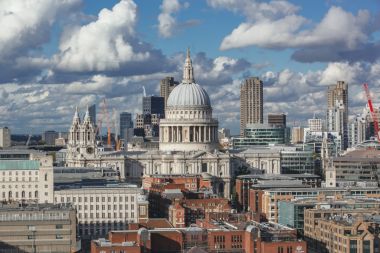
The General Synod’s decision to keep the Church of England’s diocesan and cathedral safeguarding officers as church employees arguably showed good judgement and courage.
Synod members came under strong political pressure during the debate on the future of safeguarding to transfer all safeguarding staff employed by dioceses and cathedrals to an external body.
In a powerful speech at the Synod meeting at Church House, Westminster, on February 11, the Second Church Estates Commissioner, Marsha De Cordova MP, who fields questions in the House of Commons about the established Church, pushed hard for full outsourcing under the model four option that members later voted down.
She said: “It is essential that this assembly shows both Parliament and the public that the Church is fully committed to change …While I appreciate implementation of this approach will take time and resources, and change will not happen overnight, model four will be the first step towards restoring trust.”
She concluded: “If we want to honour victims and survivors, and if we want to work towards the kind of church we want for the future, then that change must begin now.
“Synod, I hope you will enable me to stand up in Parliament later this month at Church Commissioners’ questions to be able to report good news to the Members of Parliament.”
But Synod’s decision to keep diocesan and cathedral safeguarding staff in house while transferring most of the national safeguarding staff to an independent body is rational.
When Synod legislated in July 2023 in line with the recommendations of the Independent Inquiry into Child Sexual Abuse (IICSA) to upgrade diocesan safeguarding advisers (DSAs) to diocesan safeguarding officers (DSOs), that secured their operational independence from bishops. The DSOs were no longer mere advisers to bishops but safeguarding professionals employed by diocesan boards of finance.
The legal change gave DSOs responsibility for safeguarding leadership in dioceses and meant that the Church’s National Safeguarding Team (NST) became responsible for the professional supervision of DSOs over the heads of diocesan bishops.
What bishop in his or her right mind would try to cut across a DSO in a safeguarding investigation? Such a bishop would immediately be reported to the NST and disciplinary action would follow. When the Church’s national safeguarding officers become employed by an independent body, the whistle-blowing powers of DSOs would increase exponentially.
A letter to General Synod members in advance of their debate in London from 106 safeguarding practitioners in the C of E, which currently spends around £20 million per year on safeguarding, had argued: “Detaching the Church of England’s safeguarding staff from their current employers will almost inevitably create additional barriers to communication and cooperation, harming service delivery.
“Given that ‘service delivery’ in this context involves protecting children and vulnerable adults, any barriers whatsoever could have the most serious consequences. The very last thing the Church of England needs is to disrupt the working relationships between church officers and the safeguarding professionals who work with them.”
When it came to the vote, the majority of Synod members chose to agree with these safeguarding professionals in defiance of external pressure, which prompts the question: why won’t Synod show the same rationality and independence of mind amidst the pressure to push ahead with gay wedding celebrations?
Though the C of E’s bishops, deeply divided among themselves, are delaying the introduction of stand-alone services to bless same-sex couples, which would effectively be gay wedding celebrations, the prospect of them happening is causing turmoil and division in the Church.
In December last year, the Telegraph newspaper reported that C of E conservatives are gearing up to ordain their own ministers in protest against same-sex blessings. The paper reported: “The Rev William Taylor, a leading figure in the Church’s evangelical wing, said that traditionalists plan to organise unofficial ordinations next year.”
Taylor, Rector of St Helen’s Bishopsgate in the City of London, had told the Pastor’s Heart podcast in the Anglican Diocese of Sydney, Australia, that a group of conservative ministers “will be ordained in 2025 for sure”.
The Telegraph described the move as representing “a major escalation within the Church’s deepening divide over gay relationships because only bishops – the majority of whom support same-sex blessings – are allowed to ordain ministers.
“The unofficial ordinations are expected to trigger a furious reaction from the Church of England’s hierarchy, which may refuse to recognise them as valid.”
The Church remains under great political and media pressure to launch the stand-alone services and to allow clergy to enter into same-sex civil marriages. But if Synod members can defy the pressure to go for the full outsourcing of safeguarding for good reasons, why not show the same rationality over same-sex blessings and avoid a whole load of trouble?
Julian Mann is a former Church of England vicar, now an evangelical journalist based in Lancashire.